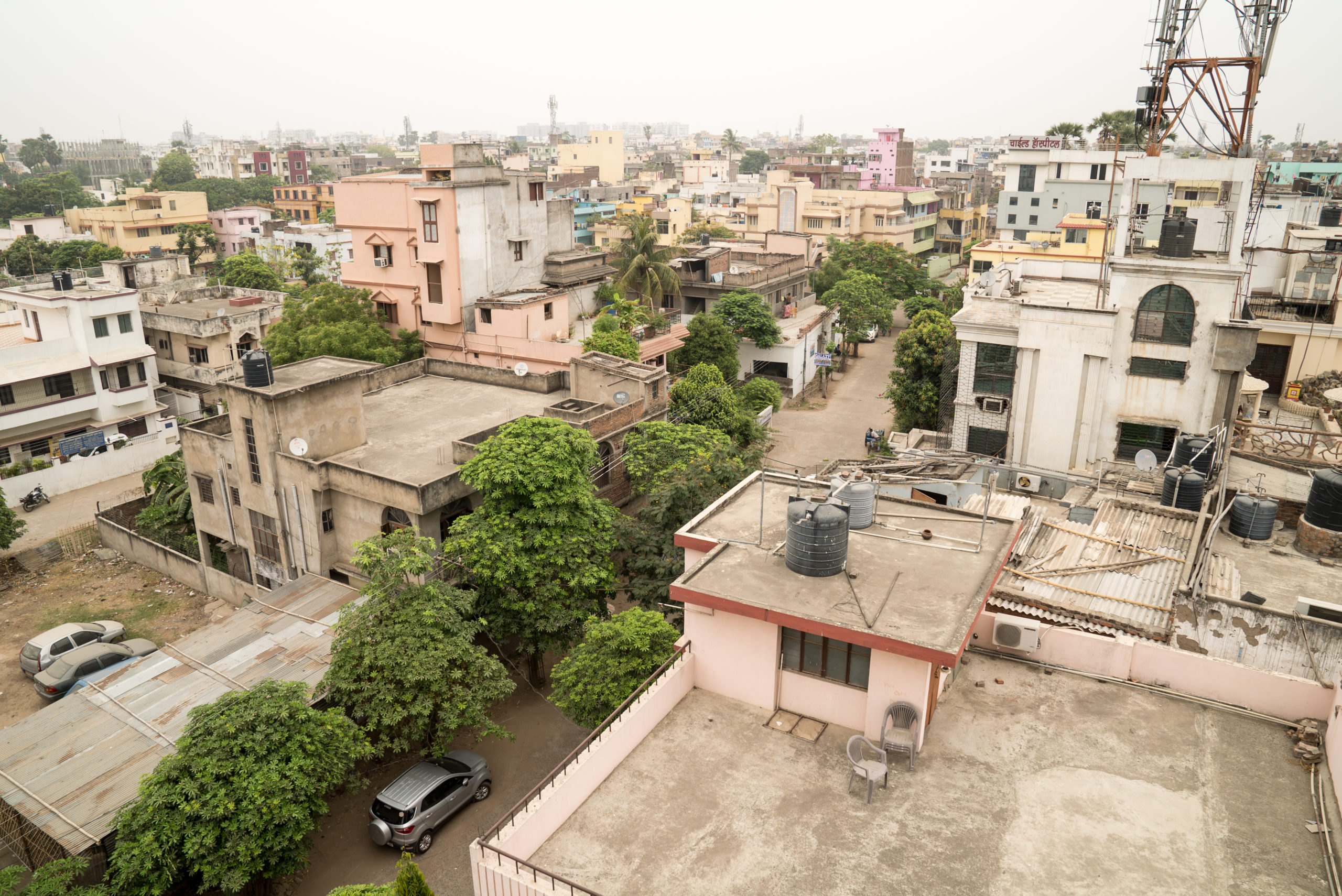Air pollution continues to be a global challenge for the environment, health, and economic development. The burden of air pollution is greatest and increasing in countries like India with rapid economic development and urbanization. In countries with limited or no air quality regulation, this causes steep increases in harmful pollution.
For many city governments in many low- and middle-income countries, the complexity and cost of understanding and controlling air pollution have been barriers to initiating or sustaining effective clean air action. A new approach in air quality management that combines conventional solutions with innovations in monitoring, assessment, data use, and organization can accelerate clean air action, especially in cities with presently limited technical capacity.
One approach: Alternative technologies for real-time air quality monitoring such as low-cost sensors (LCS) should be explored and promoted to fill current gaps in air quality monitoring.
This compendium provides pragmatic guidance for low-cost sensor (LCS) use based on applied research and field experience in India and internationally, including identifying monitoring goals and questions for which LCS may be fit to purpose, technical specifications, key quality assurance/quality control issues.
From our Partners
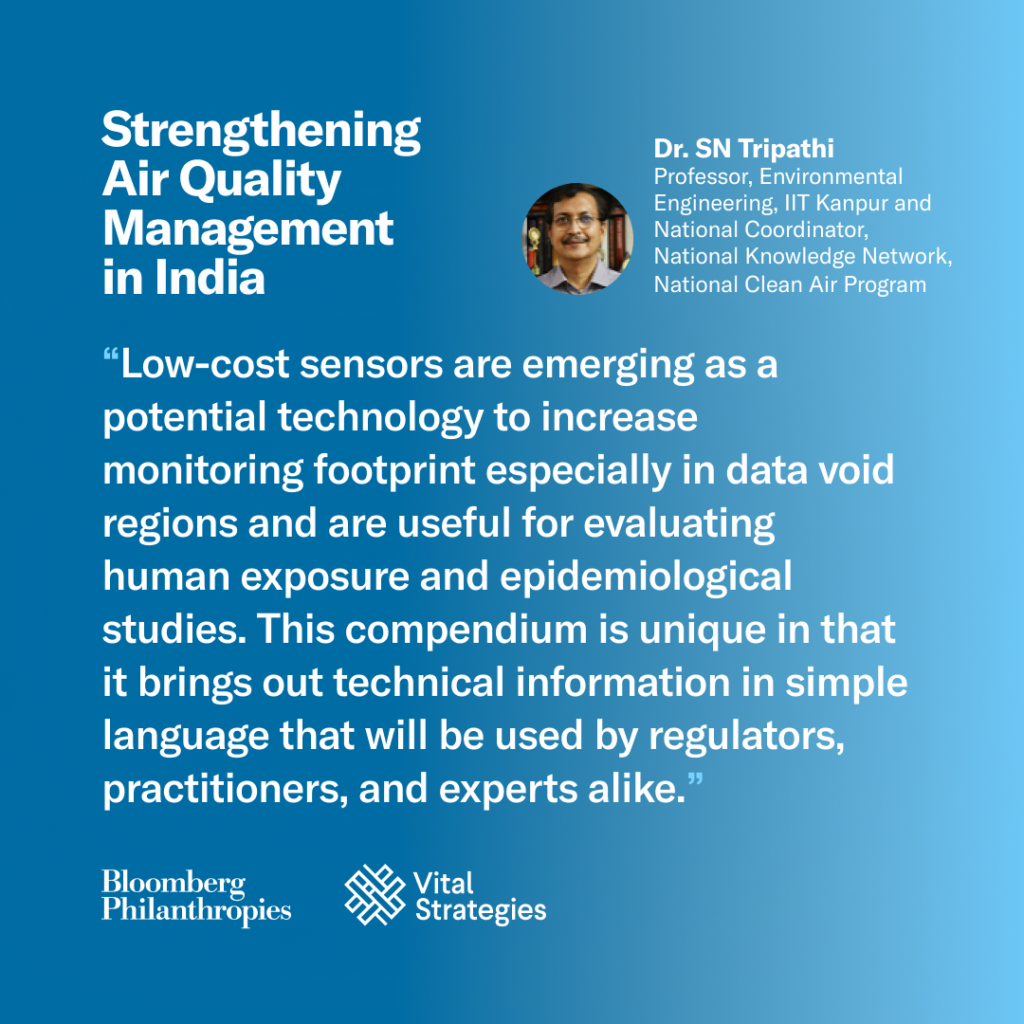
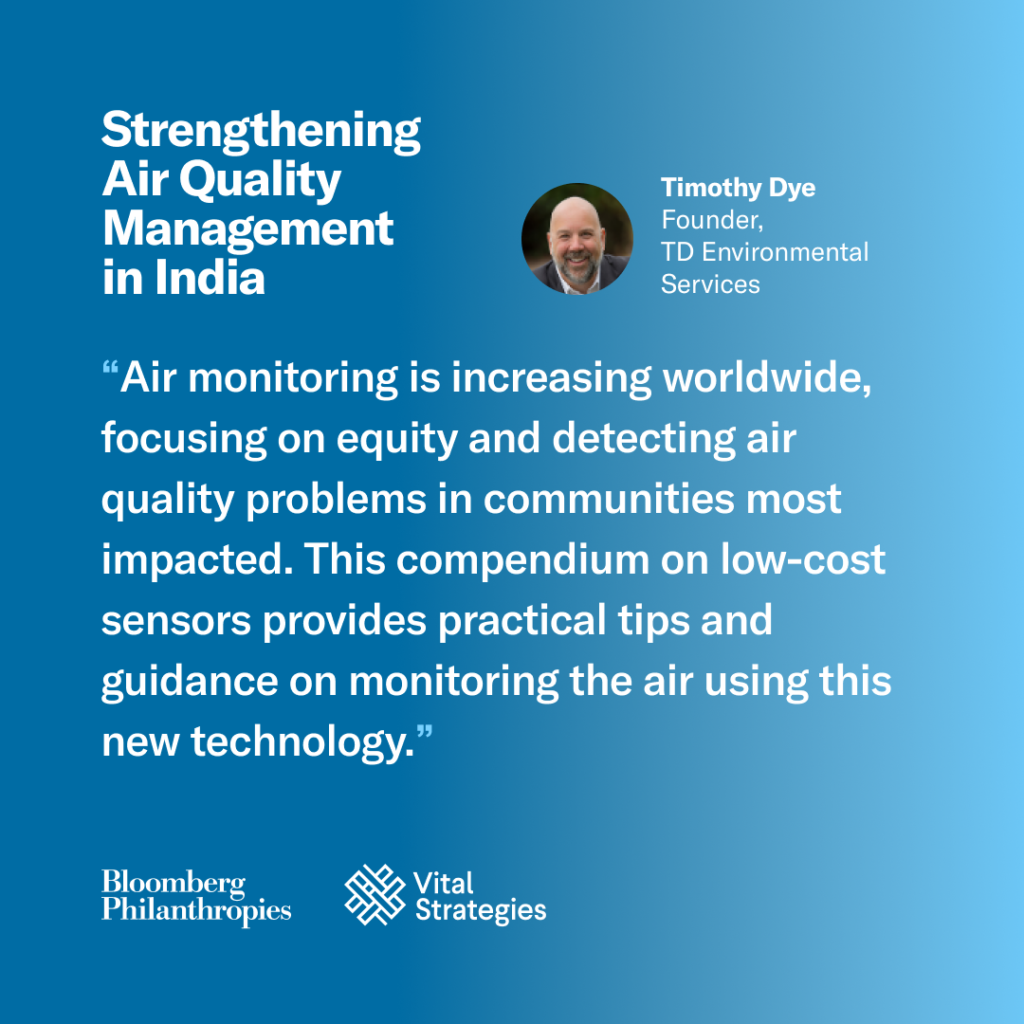
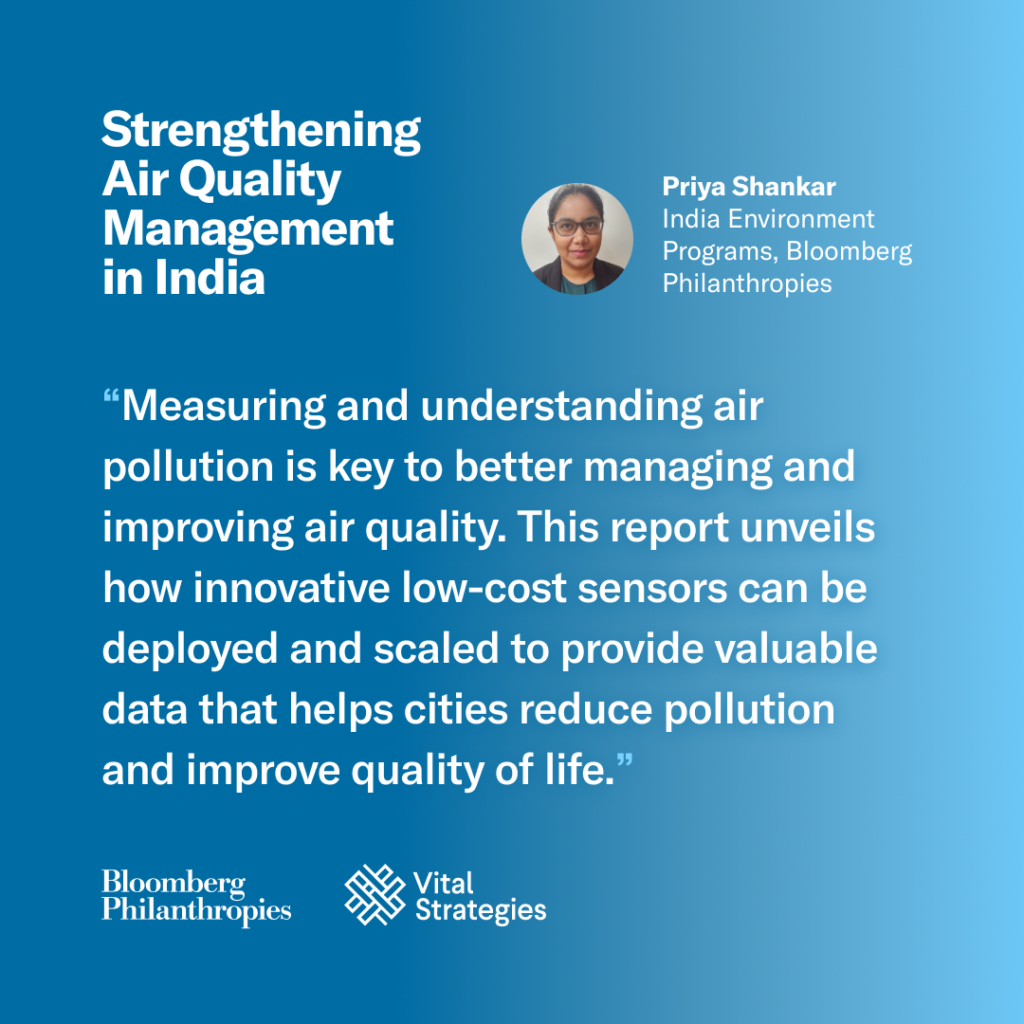
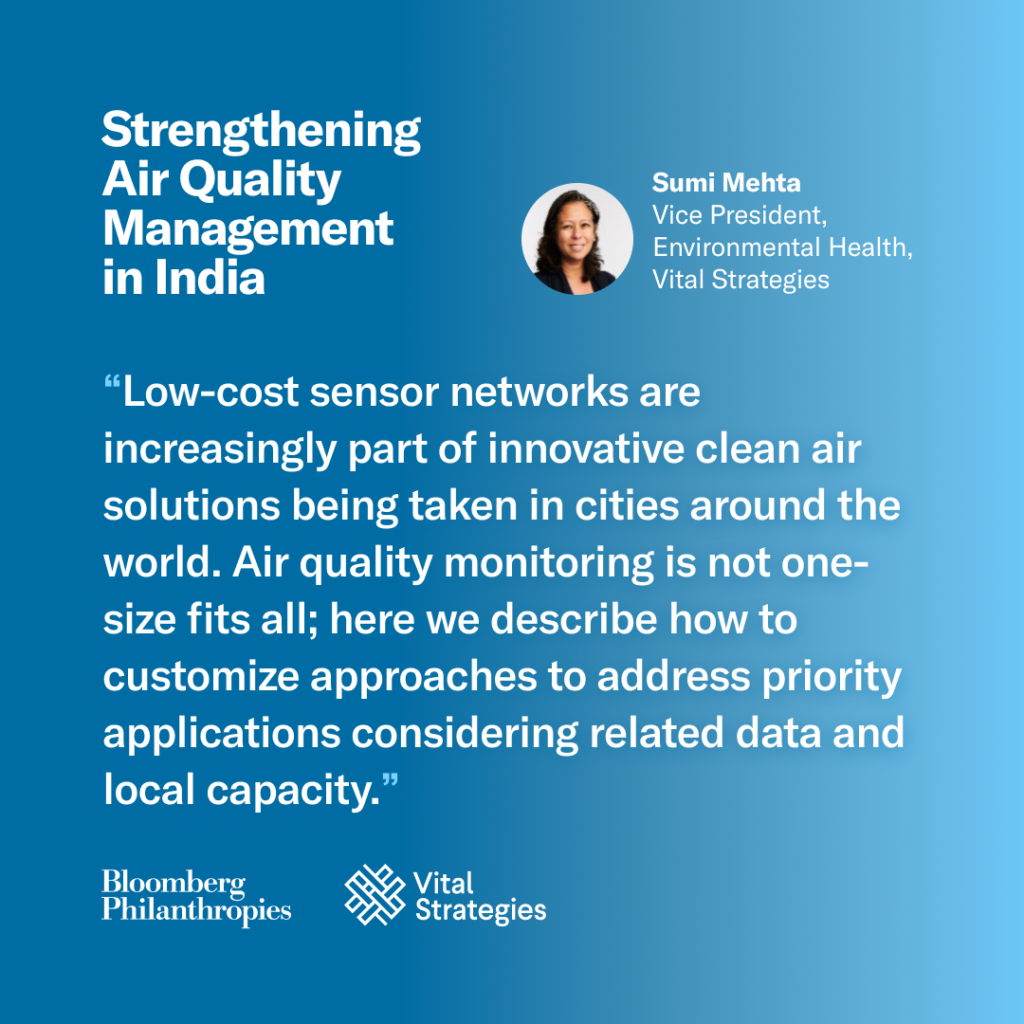
Resources
- Accelerating City Progress on Clean Air: Innovation and Action Guide: The guide provides a step-by-step, phased approach for accelerating clean air progress, with a focus on four critical priority areas for action: monitoring air quality; assessing emissions and sources; expanding data access and use; and organizing for action.
- Vital Strategies – Air Pollution and Health: Vital Strategies partners with governments around the world, providing data and technical expertise that inform air quality policies. Our program also empowers clinicians and the public to demand cleaner air.
